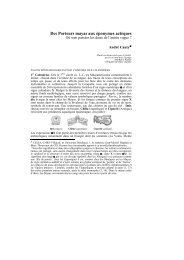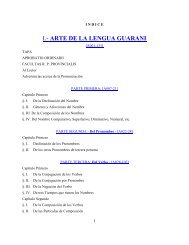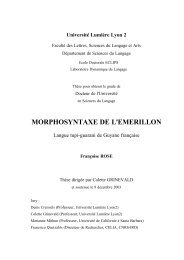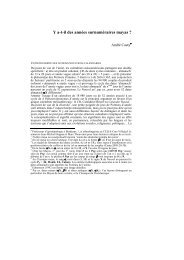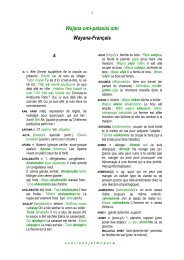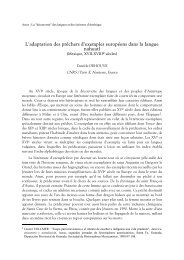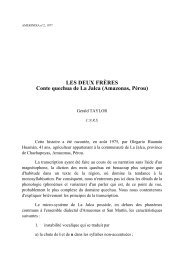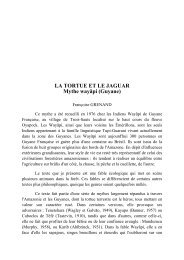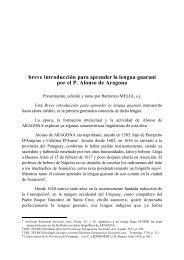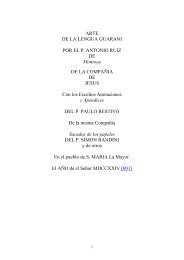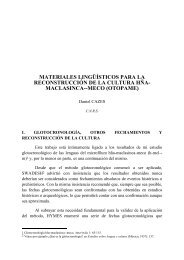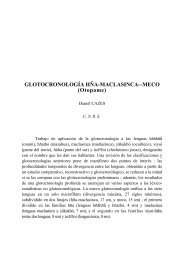The Blue Bird of Ergativity - celia
The Blue Bird of Ergativity - celia
The Blue Bird of Ergativity - celia
You also want an ePaper? Increase the reach of your titles
YUMPU automatically turns print PDFs into web optimized ePapers that Google loves.
emarkably deictic system <strong>of</strong> ergative marking, this shows the central place <strong>of</strong> thedeictic center in Sahaptin morphosyntax.Now, to bring this discussion back to our main thread <strong>of</strong> argument, we cansee that the function <strong>of</strong> "ergativity" in Sahaptin is completely unrelated to that <strong>of</strong>what we called "ergativity" in either Tibetan or Mizo, and that in fact thesephenomena have hardly anything in common structurally either -- which leaves uswith the question <strong>of</strong> what use is a word, and more to the point, what use is aconcept, which tries to subsume them both as examples <strong>of</strong> a single category?Deictic marking in Kuki-ChinIn several languages <strong>of</strong> the Kuki-Chin branch <strong>of</strong> Tibeto-Burman (to whichMizo also belongs), a simple inverse marking system has developed from themarking <strong>of</strong> deictic orientation on motion verbs (DeLancey 1980). In theselanguages a motion verb *hong 'come' has become partially or completelygrammaticalized as a cislocative 'hither' prefix on motion verbs (see DeLancey1985b for details). In some languages this morpheme has developed the additionalfunction <strong>of</strong> optionally marking some transitive or ditransitive configurations with1 st or 2 nd person object. In Sizang (Stern 1963) we find the cislocative marker usedat least optionally with any transitive or ditransitive verb with 1st or 2nd personobject or goal, as in (exx. from Stern 1984:52, 56):31) na-lá:i hong thák ka-ngá: a:2nd-letter CIS send 1st-receive NF'I having received your letter which [you] sent to me ...'32) k-ong thûk kí:k lâ-lê:u hî:1st-CIS reply again once more FIN'... I in turn reply to you.'33) hong sá:t thê:i lê:CIS beat ever INTER'Do [they] ever beat you?'34) hong sá:t lé: ká-pe:ng tál dong ká-ta:i tû:CIS beat if 1st-leg break until 1st-flee FUT'If [they] beat me I'll run till my legs break.'(Note that (31) has an easily recoverable 2nd person subject which howeveris not indexed in the verb, and both (33) and (34) have a specific anaphoric thirdperson plural subject, the second speaker's parents, which is explicitly mentioned in13



